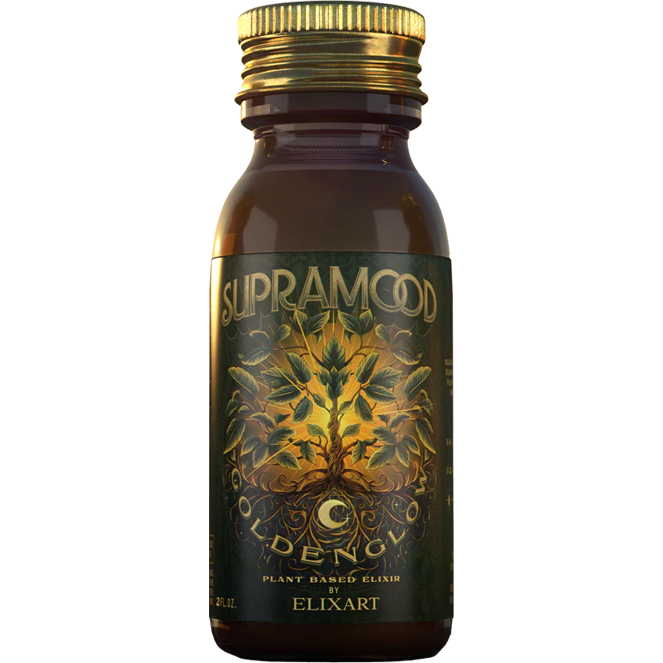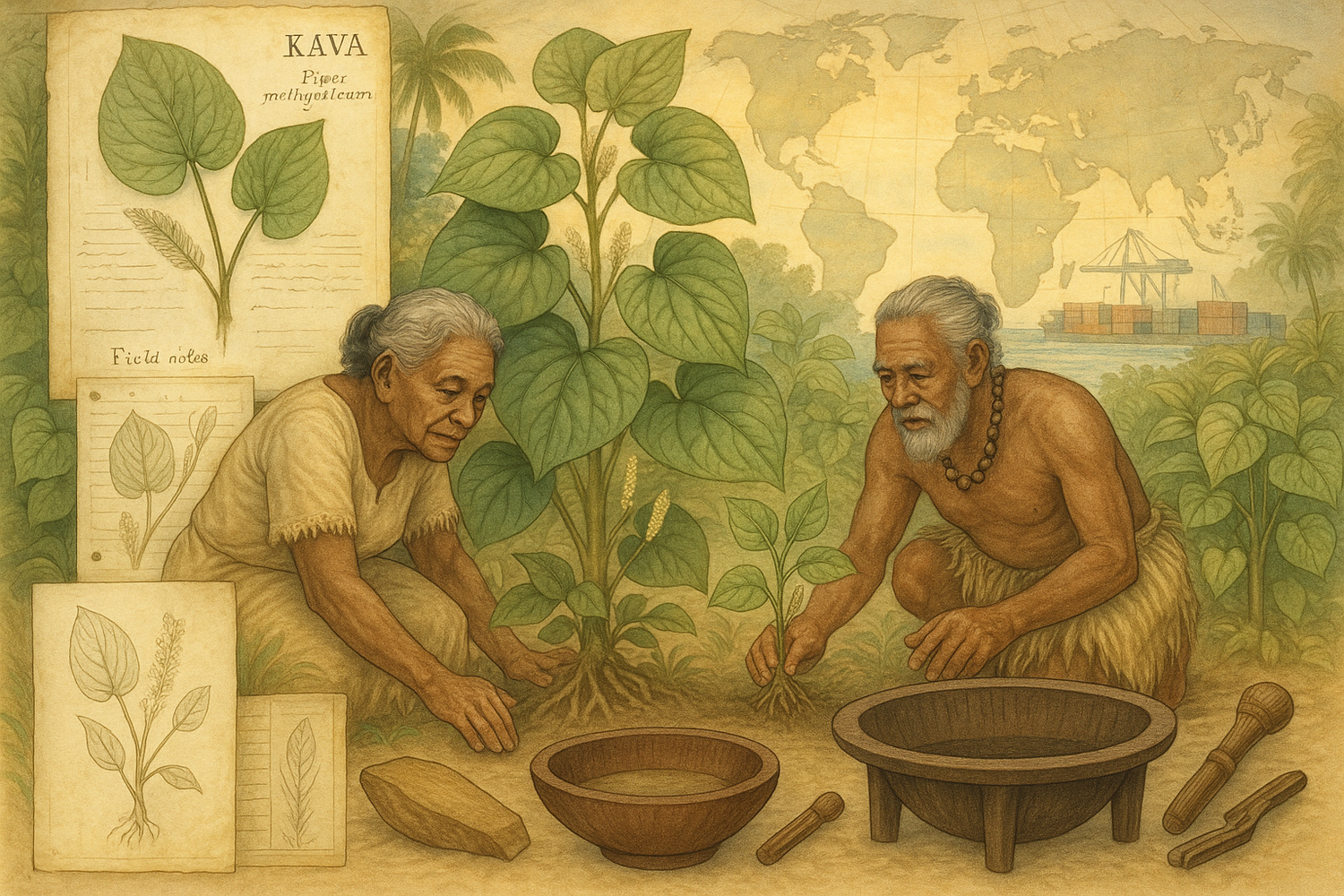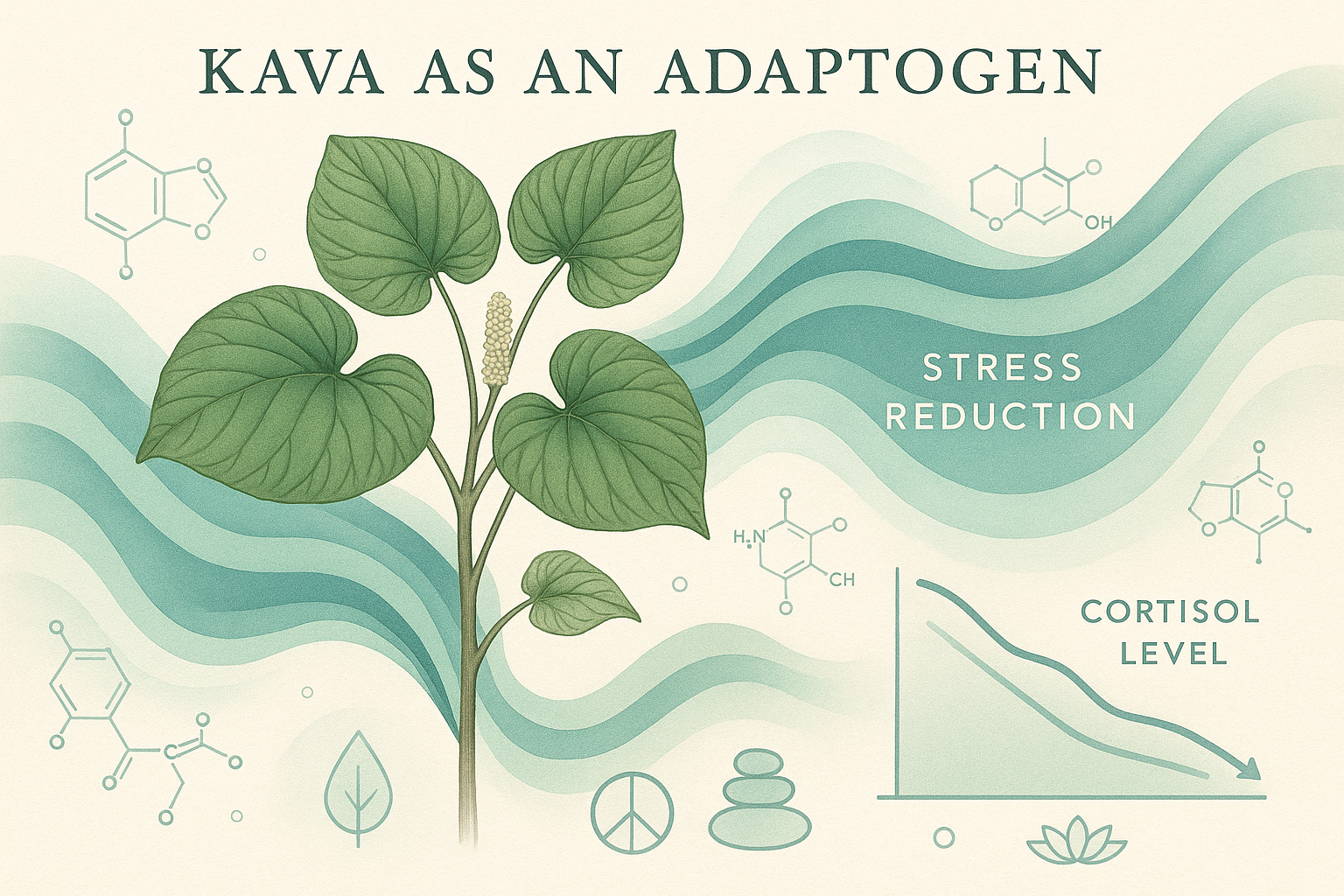Have you ever found yourself sipping a drink and wondering about its origins? Picture a remote Pacific Island, where kava has been more than just a beverage; it's a cultural cornerstone. As we delve into kava's rich tapestry, let's journey through its significance in local communities and its precarious position in a global market.
Kava’s Cultural Significance: A Living Tradition
Kava is so much more than just a drink. In Pacific Island communities, it holds a ceremonial status. Imagine a gathering where everyone shares stories, laughter, and a rich history over this traditional beverage. It’s a ritual that connects generations. Have you ever thought about how a simple drink can weave communities together?
Kava’s Role in Community Building
When you sip kava, you’re participating in something significant. It plays a crucial role in fostering communal ties and social gatherings. These ceremonies often involve:
- Sharing kava among friends and family
- Storytelling that reflects cultural heritage
- Celebrations of life events, such as weddings and births
This communal aspect is vital. It reminds participants that they are part of something bigger. From small villages to larger gatherings, kava ceremonies can vary widely, showcasing local practices. Some travelers share their experiences of participating in kava rituals. They describe the warm feeling of connection and belonging, something that transcends geographical boundaries.
Personal Tales from Travelers
One traveler recalls their experience in Vanuatu, saying, “Sitting in a circle, we shared stories over kava. It felt like being part of a family.” These personal anecdotes highlight kava’s power to unite people from different walks of life. It’s not just about drinking. It’s about the connections formed during those moments. Have you ever experienced such a gathering?
The Benefits of Kava Consumption
Research suggests several psychological and social benefits linked to kava. Some say it promotes relaxation and reduces anxiety. Others claim it enhances social interaction. Imagine feeling at ease in a crowded room just by enjoying a cup of kava. It truly has remarkable effects.
But it’s essential to enjoy kava responsibly. The global interest in kava has led to its commercialization, presenting challenges to maintaining its cultural respect. How can we appreciate kava while also honoring its roots? By supporting ethical kava consumption, like products from Supramood, you can contribute positively.
Variations in Kava Rituals
One fascinating aspect of kava is its diverse rituals. These can differ significantly between islands. For example, kava ceremonies in Fiji might look quite different from those in Tonga. These variations offer a glimpse into unique local traditions. Participating in these differing practices can be eye-opening and enriching.
The Gathering: A Chart of Cultural Practices
In traditional kava-drinking communities, cultural practices average about three ceremonies per week. This signifies the drink's relevance in daily life.
Cultural Practice
Average Ceremonies per Week
|
Kava Ceremonies |
3 |
"Kava is not just a drink; it’s a bridge that connects communities across generations."
Kava’s role in Pacific Island communities emphasizes its significance beyond mere consumption. It stands as a testament to the preservation of rich traditions while navigating the modern world's challenges. For more detailed insights on kava and its impact, consider reading articles from the World Health Organization on health practices in various cultures.
So next time you think of kava, remember its deep roots in community and tradition. It's more than a beverage – it’s a bond.
Traditional Knowledge and Practices: A Precious Heritage
Understanding Traditional Knowledge
Traditional knowledge refers to the wisdom and skills handed down through generations. It embodies the rich cultural heritage of communities, especially in the context of kava. Kava, a beverage made from the root of the kava plant, has immense significance in Pacific Island cultures. It is more than just a drink; it’s a symbol of hospitality, community bonding, and spiritual connection.
Modern Challenges
However, preserving these practices in the face of modernization remains a challenge. Rapid globalization can dilute the unique cultural identities of communities. Many Pacific Islanders find themselves caught between traditional customs and the temptations of modern lifestyles. It's a tough balance. Have you ever wondered what will happen if these practices fade away?
Community Initiatives
Some communities are successfully combating this decline. Through dedicated community initiatives, they document kava customs. For instance, workshops bring together elders and youth. This interchange allows the elders to share their knowledge about kava's importance. Educational workshops play a crucial role. They help in understanding the ethnobotanical aspects of kava, which highlight its benefits and proper uses. Collaborative efforts like these bridge the gap between generations.
What If Kava's Traditions Were Lost?
Imagine a world where kava's rich traditions disappear. The gatherings that celebrate bravery and community might fade away. The stories shared over a kava bowl would be lost, and that cultural history would vanish. It's a sobering thought. Our modern society thrives on diversity, and losing kava culture would mean losing a piece of that diversity.
Ethnobotany and Its Role
Ethnobotany, the study of the relationship between people and plants, plays a vital role in preserving kava's traditions. By understanding how communities use kava, researchers can advocate for its ethical consumption and sustainability. This knowledge empowers local communities and supports their right to maintain their traditions.
The Importance of Preservation
The stories surrounding kava use underscore the importance of preserving heritage. Each sip of kava connects you to a rich history. It reminds us, as one quote expresses, *"In every sip of kava, there is history, a story waiting to be shared."* As such, it is vital to not only enjoy kava responsibly but to also honor its cultural roots.
Declining Practices: An Alarming Statistic
It's shocking to note that 30% of Pacific Islands report a decline in traditional practices related to kava. This statistic serves as a wake-up call. Communities must rally together to document and celebrate their heritage before it’s too late.
Aspect
Percentage
|
Declining Traditional Practices Related to Kava |
30% |
Preserving kava traditions is essential. Ethnobotanical studies and community efforts can empower cultural preservation. For those interested in enhancing their connection to this heritage, products like the Supramood Goldenglow Elixir can provide not just wellness but also a taste of tradition.
For more insights, explore Ethnobotanical Perspectives on kava and its cultural significance in Pacific communities. Discover how to engage with kava in a responsible way through resources like Kava Powered.
Global Demand and Its Effects: A Double-Edged Sword
The world is seeing a surge in interest in kava. This strong, soothing beverage has roots in Pacific Island cultures. More people than ever want to experience its unique effects. But what does this mean for those cultures? Are we respecting the traditions that make kava special?
1. The Surge of Global Interest in Kava
Global sales of kava are expected to increase by 10% annually. This suggests that more people are drawn to its relaxing qualities. But what does this rapid growth imply?
- Kava is gaining popularity in wellness circles.
- Many see it as a natural alternative to alcohol.
- However, with increased demand comes potential issues.
The estimated global kava market size was around $50 million as of 2021. That’s quite significant! Yet, we must ask ourselves: Are we embracing kava's benefits while overshadowing its cultural significance?
2. Conflict Between Commercial Demand and Tradition
Commercial interest in kava can often clash with its traditional practices. You may enjoy sipping kava in a vibrant lounge in Bali, but does that experience compare to a ceremony in Fiji?
In Fijian culture, kava is a symbol of respect and community. It’s not just a beverage; it's part of rituals that bond people. When kava is consumed casually, does it diminish its profound meaning?
3. A Personal Reflection
Think back to your own experiences. Have you ever encountered kava in a bustling lounge filled with laughter and music? The atmosphere is joyous, but there's also an unsettling feeling. You know that kava has a deeper significance elsewhere.
During my visit to Fiji, I participated in a tradition-rich ceremony. The atmosphere was different—serene, respectful. Everyone was connected through the shared experience. This contrasts sharply with the casual mixing of kava and cocktails. It's a powerful reminder of what’s at stake.
4. Balancing Demand with Respect for Traditions
So, how can we appreciate kava while honoring its roots?
- Educate Yourself: Understand the cultural significance of kava before indulging.
- Support Ethical Consumption: Choose brands that promote sustainability and respect for traditions.
- Participate in Cultural Ceremonies: Whenever possible, engage in authentic kava ceremonies to truly connect with the culture.
Remember, “
While kava may quench our thirst, it also holds the power to quench our connections to culture.
” It’s a delicate balance. Exploring unique products like Supramood's GoldenGlow Elixir can be a good way to enjoy kava while still aligning with these values.
The increasing kava demand raises important questions about cultural respect and sustainability. Are we ready to engage with this beverage in a way that honors its roots? Thought-provoking, isn’t it?
For more insights on the connection between kava and culture, consider visiting this source, which dives deep into kava's cultural significance.
In today’s interconnected world, let’s ensure that our curiosity doesn’t eclipse kava's heritage.
Supporting Ethical Kava Consumption: Guidelines for Mindful Buyers
Understanding the Importance of Ethical Sourcing and Production
Kava holds a special place in the hearts of many. It’s more than just a drink; it’s a tradition deeply rooted in the cultures of Pacific Island communities. However, as global demand for kava increases, it becomes crucial to understand where and how it's sourced.
Purchasing kava ethically means supporting farmers and communities who have cultivated this heritage for generations. You’re not just buying a product. You’re honoring a culture.
Tips for Identifying Quality Kava Products
How can you ensure that you are buying quality kava? Consider the following tips:
- Reliability: Research brands before purchasing. Look for those with positive reviews, backing from experts, and clear sourcing practices.
- Transparency: Brands should openly disclose where their kava comes from and how it is produced.
- Ethical Practices: Check if the brand engages with local communities. Are they giving back? Supporting the farmers means you're likely to get a better product.
As of 2023, there are 12 certified ethical kava brands to consider. This number is a testament to a growing awareness of the importance of ethical consumption.
A Personal Experience
Last summer, I ventured into my local markets, searching for quality kava. I was surprised to find several ethical brands right there in my community. The atmosphere was warm, and the vendors were eager to share their knowledge.
In contrast, searching online proved more difficult. There were numerous options but little information on the sourcing of the products. I found myself questioning their origins. It highlights how personal experiences can lead to more mindful buying decisions.
Incorporating Kava into Social Settings
So, you have your ethical kava. Now, how do you enjoy it with friends? It's essential to incorporate kava into social settings with responsibility. You could create a mindful drinking experience.
Imagine sipping kava with the Supramood GoldenGlow Elixir. This blend not only enriches the flavor but also creates a moment to appreciate its cultural significance.
As you share kava, discuss the importance of sustainability and respect for its roots. Also, remember the famous saying:
"Ethical consumption starts with informed choices and respect for those who cultivate tradition."
Conclusion
Promoting ethical consumption of kava is not just a trend; it’s a step towards sustainability and cultural respect. By being mindful buyers, we support the communities that have nurtured this tradition for years. Choose brands that engage ethically and maintain transparency in their practices.
Finding quality kava means exploring both local markets and reputable online sources. Enjoy kava responsibly and create memorable moments with friends, all while honoring its rich history. Together, we can make informed choices that not only benefit us but also contribute to a more sustainable future.
For additional insights on ethical consumption, consider exploring external resources like World Wildlife Fund or Ethical.org.
TL;DR: Kava embodies deep cultural meanings and represents traditions that face challenges in a growing global market. Learn how to appreciate this beverage ethically while honoring its roots.







Leave a comment
This site is protected by hCaptcha and the hCaptcha Privacy Policy and Terms of Service apply.